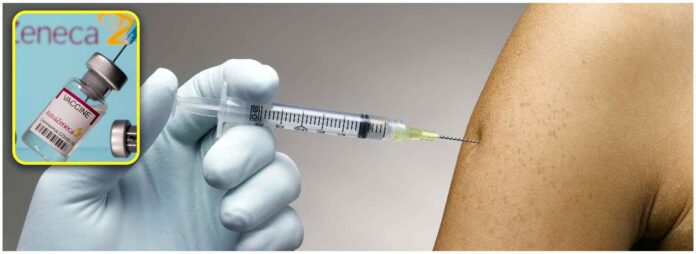The AstraZeneca vaccine, marketed in India as Covishield, has been a cornerstone of India’s vaccination drive against COVID-19. However, reports of rare blood clotting incidents in some vaccine recipients have raised concerns. It is essential for vaccine takers in India to understand the nature of these risks, the symptoms to watch for, and the overall safety of continuing to use this vaccine.
The concern revolves around a very rare condition known as Vaccine-Induced Immune Thrombotic Thrombocytopenia (VITT). This condition leads to blood clotting and low levels of blood platelets. Studies suggest that this reaction is extremely rare, occurring at a rate of about 4-6 cases per million doses administered. It’s crucial to recognize that the benefits of vaccination in preventing COVID-19, with its potential severe complications and high risk of mortality, overwhelmingly outweigh the risks of adverse effects like clotting.
Identifying Symptoms of Concern
The symptoms of VITT differ from common side effects of the vaccine, such as fever, fatigue, and a sore arm. They usually appear within 4 to 20 days after vaccination. Here are symptoms that should prompt immediate medical attention:
- Severe headache that does not improve with over-the-counter painkillers and gets worse upon lying down or accompanied by blurred vision, nausea and vomiting, difficulty with your speech, weakness, drowsiness, or seizures.
- Persistent abdominal pain.
- Unusual skin bruising or pinpoint round spots beyond the site of injection.
- Shortness of breath, chest pain, leg swelling, or persistent abdominal pain.
It is vital for vaccine recipients to seek medical help immediately if they experience any of these symptoms following the vaccination.
Risk Factors and Precautions
Research is ongoing to determine specific risk factors for VITT. Early evidence suggests that younger adults may be more at risk, which has led some countries to recommend other COVID-19 vaccines to younger age groups. However, in the context of India, where Covishield is a major component of the vaccine rollout, public health authorities continue to endorse its use for all eligible age groups, monitoring the situation closely.
For individuals with a history of blood clotting issues, it is advisable to discuss your health history with a healthcare provider who can assess your risk and recommend the most suitable COVID-19 vaccine. The same goes for individuals who have a history of heparin-induced thrombocytopenia (HIT), another rare clotting disorder.
The Broader Context of Vaccine Safety
Despite the concerns, it’s important to keep perspective on the overall safety of the AstraZeneca/Covishield vaccine. Tens of millions of doses have been administered worldwide, providing significant protection against COVID-19 and helping to curb the pandemic. The detection of rare side effects is a sign that the monitoring systems are working effectively and that regulators are committed to ensuring the safest possible rollout of vaccines.
The Indian health authorities, along with international bodies like the World Health Organization (WHO), continue to monitor vaccine safety reports very closely. They also continue to stress that the benefits of the AstraZeneca vaccine in preventing COVID-19, with its associated risks of severe disease and death, far outweigh the risks of side effects.
Conclusion
For vaccine takers in India, staying informed and vigilant about the symptoms of rare but serious side effects like blood clotting is important. However, it is equally crucial to appreciate the protective benefits of the Covishield vaccine. The risks are very low, and the benefits in combating the far greater threat of COVID-19 are substantial. Engaging in open conversations with health care providers and reporting any adverse symptoms after vaccination can contribute to personal safety and the broader goal of ending the pandemic.
